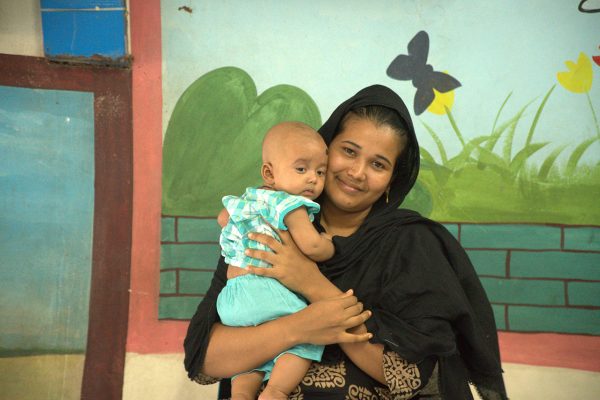Reading Time: 2 minutes
“Wait, let me get my glasses first”. How many times have we heard this expression from our colleagues, parents and friends or pronounced it ourselves? And experienced a feeling of relief as the blur of black waves turns into a legible text! Reading glasses are ubiquitous in our society: we use them when we are working, reading, watching news, etc. – so that we consider them as a basic necessity and take them as granted.Yet, in some parts of the developing world, a pair of reading glasses can be a hard-to-access luxury, available in expensive optic shops in urban areas. This means that millions of men and women lose a great part of their economic productivity, not to mention emotional well-being, as the acuteness of their vision decreases with age. A lot of young people with a weak vision have to forego opportunities to be engaged in certain professions such as jewelry or weaving, or cannot advance in education because of limited reading.
“Wait, let me get my glasses first”. How many times have we heard this expression from our colleagues, parents and friends or pronounced it ourselves? And experienced a feeling of relief as the blur of black waves turns into a legible text! Reading glasses are ubiquitous in our society: we use them when we are working, reading, watching news, etc. – so that we consider them as a basic necessity and take them as granted.Yet, in some parts of the developing world, a pair of reading glasses can be a hard-to-access luxury, available in expensive optic shops in urban areas. This means that millions of men and women lose a great part of their economic productivity, not to mention emotional well-being, as the acuteness of their vision decreases with age. A lot of young people with a weak vision have to forego opportunities to be engaged in certain professions such as jewelry or weaving, or cannot advance in education because of limited reading.
Jhili, for example, is a single mother who lives in Bangladesh makes her living as a master embroiderer. As she reached her thirties, she started to suffer headaches and could not do her intricate work as fast and well as she used to. Her income started to decline and she started to fear for her children’s well being.
VisionSpring and BRAC started a partnership in Bangladesh to bring the simple yet necessary instrument – reading glasses – to the people at the bottom of the pyramid. BRAC has a unique network of over 88,000 community health volunteers (Shastho Shabikas) who are trained in managing common illnesses and in preventive healthcare. These women visit over 250 households per month providing basic healthcare services as well as selling healthcare products at small margins. This is an excellent way of bringing primary healthcare to the doors of poor people at the same time creating economic livelihood opportunities for the health volunteers.
BRAC is providing additional training and portable instruments to Shastho Shabikas to measure eye vision and prescribe eyeglasses that they carry in their vision kits. The average cost of a pair of glasses is $1.80, and the women make about 20c from each sale.
For Jhili the help came when she most needed it. The pair of glasses that she bought from BRAC’s community health volunteer, adjusted her vision and she resumed her beautiful craft of embroidering saris.





